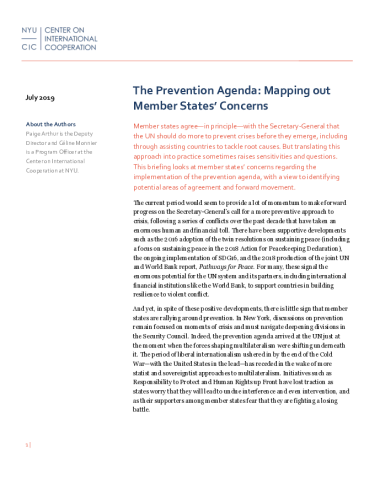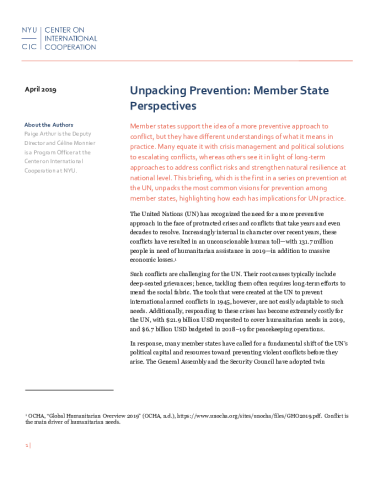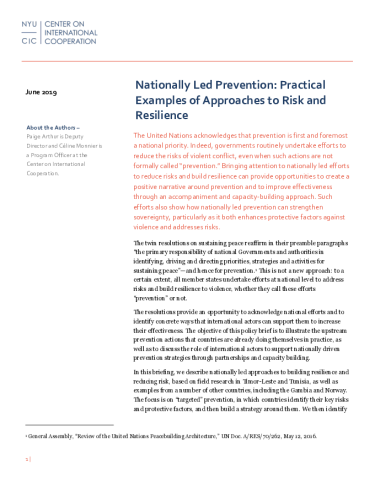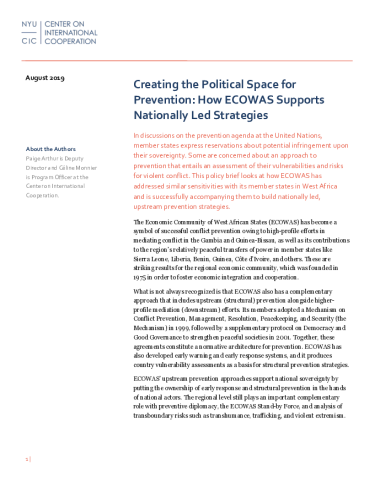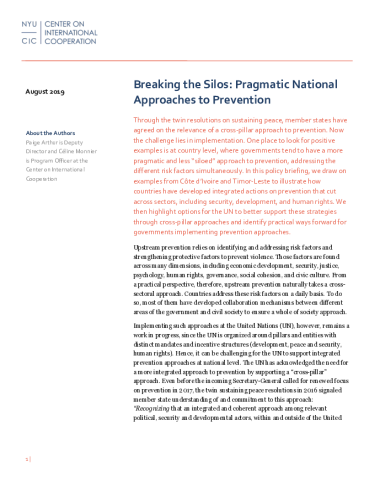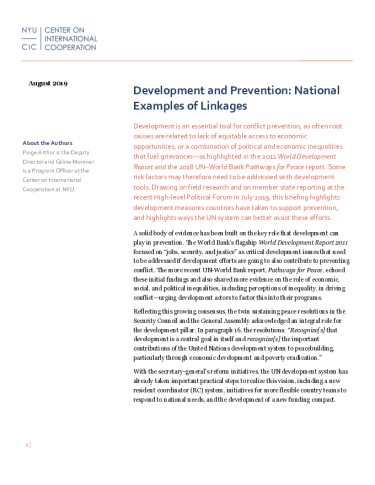Despite recent positive developments making forward progress on the Secretary-General’s call for a more preventive approach to crisis, in New York, discussions on prevention remain focused on difficult moments of crisis and must navigate deepening divisions in the Security Council.

Member states agree that more effort should be made to prevent violent conflicts farther upstream, rather than to address them mainly when they are imminent or in progress (or on the Security Council agenda).
However, as described in our previous briefing, “prevention” at the UN has not had enough conceptual clarity, which has raised sensitivities over a wide range of issues. This, in turn, has hindered implementation of a more strategic approach to prevention—especially upstream prevention—at the practical level.
Indeed, the prevention agenda arrived at the UN just at the moment when the forces shaping multilateralism were shifting underneath it. The period of liberal internationalism ushered in by the end of the Cold War—with the United States in the lead—has receded in the wake of more statist and sovereigntist approaches to multilateralism.
While member states support prevention as a general idea, they have a wide range of concerns regarding its implementation—making it difficult for member states to rally around it.
Read our latest paper: The Prevention Agenda: Mapping Out Member States’ Concerns.pdf
Nevertheless, there are pockets of common ground:
- At the UN, prevention strategies that are based on consent and are nationally led, such as those discussed in the Peacebuilding Commission, will find the broadest and deepest buy-in among member state constituencies. Read also: Nationally Led Prevention: Practical Examples of Approaches to Risk and Resilience
- pproaches that focus on capacity building rather than on shaming countries or direct interference similarly will attract wider support, as they will be seen as enhancing sovereignty rather than reducing it.
- To the extent that there are opportunities to create more inclusion and transparency around processes that can support prevention, these might be seized.
- Most member states acknowledge the need for more spaces to discuss prevention among themselves and to increase their technical expertise.
- There is a call for the discussion on prevention to be to be applied more universally to all member states, acknowledging that no society is immune to conflict and that each of them should undertake conscious efforts at all times to build peaceful societies.
